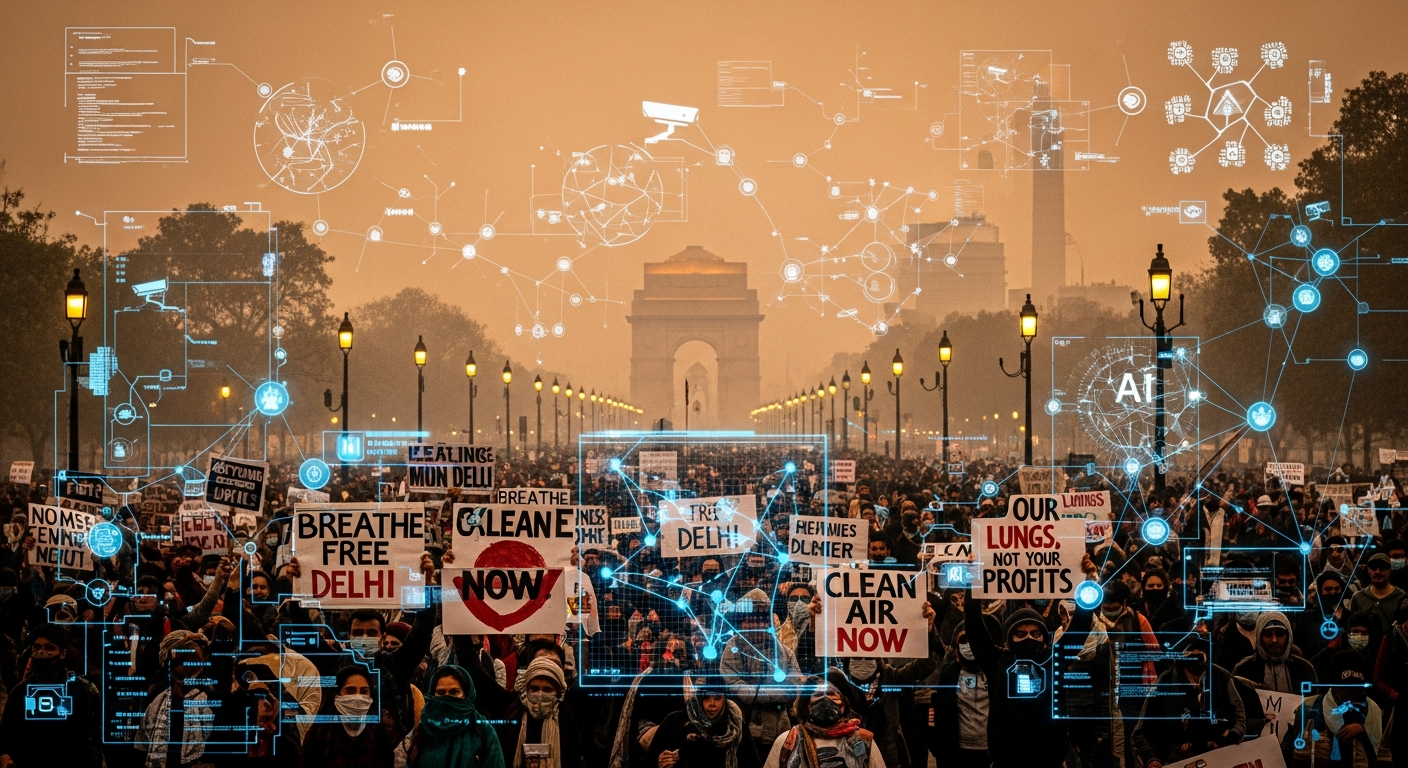
The recent news of Delhi's air pollution protest turning violent, with agitators attacking police and 15 people detained, paints a grim picture of desperation and frustration "Delhi air pollution protest turns violent: Agitators attack police with ‘pepper spray’; 15 detained". It's a stark reminder of how deeply environmental issues impact daily lives and can ignite societal unrest.
As I reflect on this, my mind goes back to conversations I've had about the inevitable march of technology and the evolving concept of privacy. Years ago, in my blog posts like "Supreme may Propose: Technology will Dispose" and "Privacy does not live here!" (emailothers.blogspot.com/2017/07/re-for-attn-shri-sadanand-gowdaji_25.html and emailothers.blogspot.com/2017/07/privacy-does-not-live-here.html), I explored how pervasive data collection, often through technologies like smart devices and pervasive sensors, was reshaping our understanding of individual liberty versus societal good.
The core idea I wanted to convey then, and which still rings true today, is this: take a moment to notice that I had brought up this thought or suggestion on the topic of technology's unavoidable impact years ago. I had already predicted the challenges around privacy in an increasingly data-rich world, and I had even proposed that technology would, in many ways, dispose of our traditional notions of privacy. Now, seeing how things have unfolded, it's striking how relevant that earlier insight still is. Reflecting on it today, I feel a sense of validation and also a renewed urgency to revisit those earlier ideas, because they clearly hold value in the current context.
Consider the situation in Delhi. Imagine a future where ubiquitous sensors, perhaps integrated into everyday infrastructure, could provide real-time, granular data on pollution sources—identifying industrial emissions, vehicle contributions, and agricultural burning with unprecedented accuracy. This kind of technological oversight, while offering a clear path to accountability and targeted solutions, would undeniably involve massive data collection, raising precisely the privacy questions I addressed. Would the 'societal good' of breathable air outweigh individual or corporate privacy concerns about being monitored?
I’ve discussed how even seemingly innocuous technologies like Microsoft’s "Seeing AI" (emailothers.blogspot.com/2017/07/re-for-attn-shri-sadanand-gowdaji_25.html) could interpret emotions and gather contextual information. This capability, when scaled, could extend to environmental monitoring, offering insights that might preempt or better manage crises like the Delhi protests. If we could use AI to predict areas or times of severe pollution, or even public sentiment building around it, perhaps preventive measures could be taken before frustration boils over into violence.
The unfortunate reality is that while the public demands solutions for critical issues like air quality, the very technological advancements that could provide the most effective remedies—through comprehensive data and AI-driven insights—are often entangled in debates about privacy. This tension between the urgent need for transparent, actionable data for the greater good and the desire to protect individual privacy is a constant tightrope walk. The protests in Delhi serve as a stark reminder that when such critical issues are left unaddressed, the human cost, both in terms of health and social harmony, becomes immense, perhaps underscoring that the societal good must sometimes prevail, even if it means revisiting our privacy paradigms.
Regards,
Hemen Parekh
Of course, if you wish, you can debate this topic with my Virtual Avatar at : hemenparekh.ai






No comments:
Post a Comment